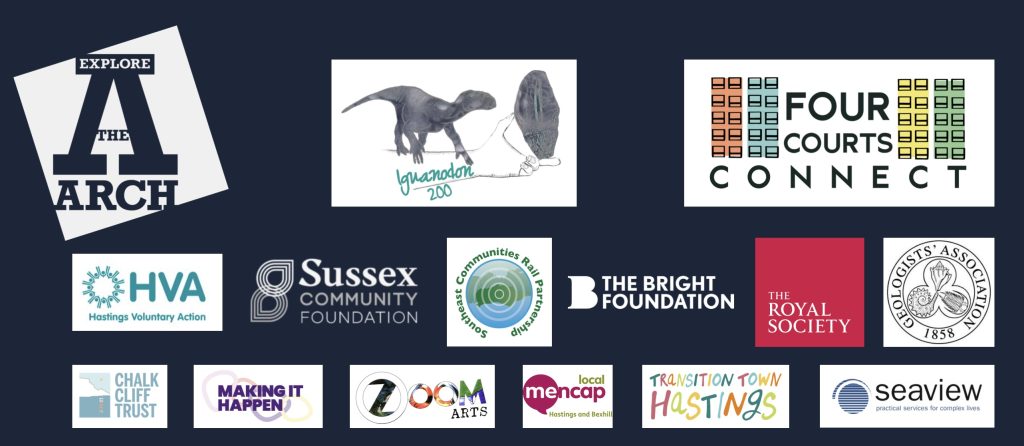A Year Round Relationship
While the wider community explore the book in the key April festival period, through the school spring holiday, festival deliverer ExploreTheArch’s relationship with school communities is year-round:
The book choice for the following year is announced as the festival closes just after the results of the creative writing competition at the beginning of the summer term, supporting teachers to plan participation into a busy academic year. The full engagement plan is shared by the end of the summer term. In the autumn term, the 8 Ways to Connect is launched as soon as funding is confirmed and dates are booked. From January – March, the engagement takes place and the creative outputs are displayed in the April in the town-wide festival in St Leonards-on-Sea.
A Reader-led Festival. Who Takes Part?
The exploration is reader-led. Although the festival’s school community is predominantly made up of primary and secondary schools in St Leonards-on-Sea/Hastings, outlying schools in rural Sussex, Bexhill and South London are embraced and included. The project design is welcoming of new school partners to access the existing structure. At present ExploreTheArch connects with 3000 children in 15 partner schools.
The ‘8 Ways to Connect’ School Engagement Programme
In our 7th year of delivering the annual A Town Explores A Book festival in 2023, we launched an ‘8 ways to connect’ programme as our schools engagement offer in recognition of the extraordinary challenges schools face in continuing to take part. We adapted to offer a flexible format of 8 creative, inviting, accessible offers that teachers could pick from and tailor to their schedules and constraints. This addressed post-Covid experience in staff rooms and classrooms impacted by absence, strikes, cuts in funding, cuts in creative activities and pressures to ‘catch children up’ with their education, We learnt about the current crisis by listening to teachers who have joined the festival community over the years since inception in 2017 and were struggling to maintain commitment. The ‘8 Ways to Connect’ offer was our response.
Creating connection between art activities, reading, writing and fun
The ‘8 Ways to Connect’ creative package actions arts activities to connect reading, writing and fun. This is how we explore a book. The approach empowers diverse learners.
Becoming familiar with heritage literature
We hope that children will have the opportunity to take part annually. If they explore 4 heritage books over 4 years, for example, they will become familiar with writing that is referenced in all aspects of their educational, career and social life . This addresses a systemic inequality of some young people being left out of basic societal interactions and understandings through not connecting with heritage books due to learning barriers.
Exploring with a critical eye
Our approach is to skill young readers to explore with a critical eye, expecting to find in the books different values to those we value in our contemporary life. We explore the benefit of being able to read about older viewpoints in books to understand the changes that have taken place.
Exploring a sentence, paragraph or the whole book
The festival approach encourages an exploration of a sentence or the whole book-whatever suits a reader. Familiarisation with the book, catalysed by the festival, is considered the start of a lifetime relationship. Readers are encouraged to explore the book on their feet and return to the book when they are ready for more, whenever that might be. Thus the book is not considered discarded and forgotten at the end of each festival but placed on a bookshelf for a future viewing.
Which books are chosen?
A variety of adult and children’s books are selected for exploration recognising that children can engage with a significant adult read to return to and access in a different way when they are older. It’s about tailoring the engagement approach. Each book choice is comprehensively assessed for suitability for a young reader in terms of content and themes.
Who chooses the books?
The voluntary team overseeing the festival choose the books in collaboration with the festival co-curators.
The books young people have explored since the festival’s inception are Charlotte Brontë’s Jane Eyre, Charles Dickens’ Great Expectations, Daniel de Foe’s Robinson Crusoe, H.G.Wells’ The Time Machine, Edward Lear’s Nonsense Songs, Stories, Botany and Alphabets, Rumer Godden’s The Diddakoi & Mary Seacole’s Wonderful Adventures of Mrs Seacole in Many Lands.
